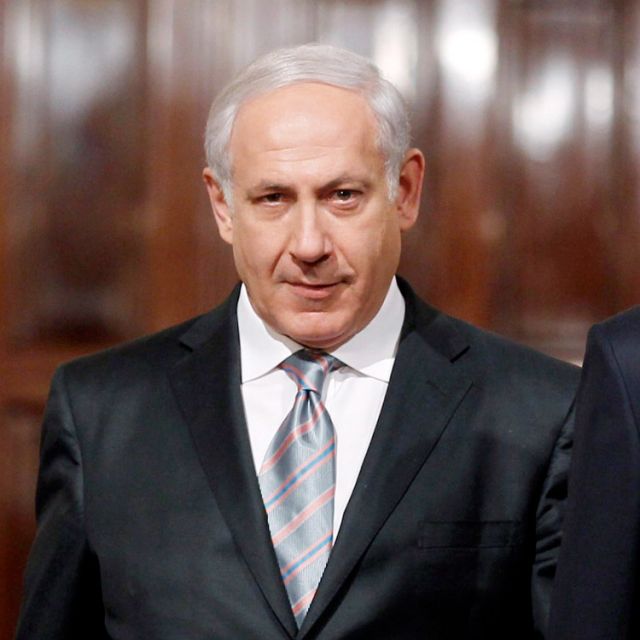Last week, Israeli Prime Minister Benjamin Netanyahu visited Prime Minister Stephen Harper in Ottawa to build on their friendship and ask for further Canadian support against Iran. Coincidentally, the visit’s timing was just prior to something called “Israeli Apartheid Week” from March 5 to 9.
Much to the chagrin of Harper and many other Canadians, “Israeli Apartheid Week” demonstrations began in Toronto in 2005. The week is now “celebrated” in dozens of cities around the world, even in Israel by some of its left-wing intelligentsia class.
When Churchill used that famous line he was comparing democracy to other forms of government like communism and fascism. Democracy isn’t perfect, but it beats the alternatives. That is an apt description for Israel, a diverse, multicultural democracy always under the microscope for its treatment of Palestinians in Gaza, West Bank and East Jerusalem, and even for its treatment of Muslims within Israeli borders proper.
Palestinians have a legitimate argument for sovereignty and an end to Israeli settlements in the West Bank. (The Golan Heights is a different matter. It is a strategic piece of land Israel should never relinquish. Visiting there recently, I saw firsthand where Syria launched so many mortar attacks on innocent civilians prior to 1967. The land is of no use to Syria, except for aggressive military purposes.)
Caught in the crossfire of politics are some of the oldest Christian communities in the world. They are finding themselves in a marginalized situation with many fleeing, creating a real possibility that the Church in Israel and the Palestinian territories could become submerged. The holiest shrines would remain, but there would be few practising Christians to keep these as living places of worship and not just hollowed out hallowed ground for the tourist and the pilgrim.
As stated, Israel is an imperfect country, but to equate it with the fascist apartheid thugs of South Africa of the last century ignores certain facts. Israel is one of the most democratic and open societies in the world. Of its population of almost seven million, about 25 per cent are non-Jews (1.5 million Muslims, 130,000 Christians and 100,000 Druze, a derivative sect of Islam.) Like Hebrew, Arabic is an official language in Israel.
About 10 per cent of the seats in the Israeli Parliament are held by Arabs, including former deputy speaker Ahmad Tibi, once an aide to former PLO leader Yasser Arafat. Arabs have held cabinet posts in Israeli governments. Arabs have served on the Israeli Supreme Court, including Salim Joubran, currently on the bench.
Does that sound like an apartheid state? The left-wing calls these Arab leaders in Israel “tokens” but a non-biased opinion might see something different.
Now, let’s turn to religious freedom. There are churches and mosques all over Israel. Last year, as I walked the Via Dolorosa in Jerusalem — the purported path Christ took to His crucifixion — one could barely be heard above the sirens for the Islamic call to prayers.
At first, it was startling, but then it became heartwarming thinking of the three Abrahamic religions co-existing in such a holy place. Do these three religions co-exist anywhere else in the Middle East?
The famed Dome on the Rock, an Islamic shrine, sits on Temple Mount in Old Jerusalem, the place where Abraham prepared to sacrifice his son, Isaac, considered the holiest place on Earth in Judaism. Ask yourself: would a Jewish apartheid state allow this to remain an Islamic shrine, said to be where Mohammed ascended into Heaven?
Now, let’s turn to other countries in the Middle East. Jews have been virtually eradicated from all countries but Israel. Christians are being persecuted in many Muslim countries for practising their faith. And it’s been like this for some time.
Pointing this out is not blindness to the suffering of Muslims in the Gaza Strip and West Bank, or to the Christians caught in the middle. But it makes one wonder about people from afar attacking Israel on human rights issues without also demonstrating against other regimes in the Middle East.
Ironically, Israel gets attacked because it is an open, democratic country. I believe it is in Israel’s long-term interest to find a fair and just peace with regard to the occupied territories and perhaps friends like Harper can help in this regard. But I also believe when we hear the rhetoric about Israel, we should take it with a grain of salt because, after all, Israel really is the worst, except for all the rest.


